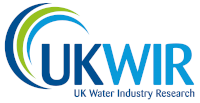Source and pathway control of non-sanitary pollutants
29/08/2024
Certain pollutants present in trade effluent, such as persistent organic pollutants (POPs) or trace elements, are known to persist in the environment for long periods and bioaccumulate in organisms. This in turn risks vital Environmental Quality Standards (EQS) being exceeded, with the effects of such pollutants potentially continuing to be observed even after the discharge has ceased.
In answer to this significant challenge, this project centred on understanding which trade effluent control approaches could be applied within the UK and Irish legislative context.
After conducting a literature review to identify different approaches applied worldwide, the following regulatory and market-based options were highlighted as potential additional approaches for the UK and Ireland:
- Regulatory measures: effluent quality standards, mandatory pre-treatment of trade effluent and the development of non-binding best practice guidance.
- Market-based measures: applying charges on effluent discharges (either locally or in a centralised scheme) and extended producer responsibility (EPR) schemes
The report provides a hopeful picture, illustrating that there are existing, actionable solutions for greater control of pollutants in trade effluent in the UK and Ireland. Though it must be recognised that implementing changes to trade effluent legislation is likely to be a lengthy process and any policy alterations to improve source control of pollutants will require time for implementation. Collaboration and industry-alignment remain, as always, key to progressing in this area.
The project was undertaken by Logika Group, whose Project Manger was Marko Risti-Smith, in collaboration with RDC Environment and Stantec. The Programme Lead was Mark Craig from Severn Trent Water, and UKWIR’s Project Manager was Nina Jones.
